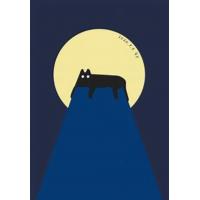Letzte Episode
The Rise and Fall of Animal Farm: A Political Allegory
31. August 2023
Nächste EpisodeChapter 1:What is the Animal Farm simplified
"Animal Farm" is a popular novella written by George Orwell. It is an allegorical story that portrays the events leading up to the Russian Revolution and the early years of the Soviet Union. The simplified version of "Animal Farm" would focus on the main plot points and themes, making it more accessible for younger readers or those seeking a concise overview.
In this simplified version, the animals on Manor Farm, led by the pigs, rebel against their human farmer, Mr. Jones. They take over the farm, renaming it "Animal Farm," and establish a set of principles called the Seven Commandments, which promote equality and animal rights. The most important Commandment was "All animals are equal."
Over time, the pigs, led by Napoleon and Snowball, become the dominant figures on the farm and make decisions on behalf of the other animals. Snowball represents the idealistic leader, while Napoleon is more cunning and power-hungry.
Snowball proposes building a windmill to generate electricity for the farm, but Napoleon disagrees and exiles Snowball with the help of his loyal dogs. Napoleon takes control and slowly starts changing the rules, using propaganda and fear to manipulate the animals.
The pigs begin to live a luxurious life in the farmhouse while the other animals work hard and struggle to survive. The original principles of equality are abandoned, and the Commandments are altered to benefit the pigs. The famous phrase "All animals are equal, but some animals are more equal than others" reflects this shift in power dynamics.
Despite the worsening conditions on Animal Farm, the other animals are too afraid to challenge Napoleon and the pigs. Eventually, the pigs become indistinguishable from the humans they originally rebelled against, symbolizing the corruption of power.
In the end, the pigs openly associate with humans, and the original principles of Animalism are forgotten. The animals realize that they have simply replaced one form of tyranny with another, highlighting Orwell's critique of totalitarianism and the abuse of power.
The simplified version of "Animal Farm" presents a cautionary tale about political manipulation, corruption, and the danger of blindly accepting authority without questioning its intentions.
Chapter 2:What is the real message of Animal Farm
The real message of Animal Farm, written by George Orwell, is a critique of totalitarianism and a warning about the corruption of power. The book uses a farm as a microcosm of society, where the animals rebel against their human oppressors and establish their own government based on equality and justice.
However, as time progresses, the pigs, led by Napoleon, gradually take control and exploit their fellow animals, betraying the principles of the original revolution. This allegory represents the rise of dictators and the transformation of revolutions into oppressive regimes.
Orwell's message is that power corrupts, and absolute power corrupts absolutely. He illustrates how those in power manipulate language, rewrite history, and use propaganda to maintain control over the masses. Through characters like Napoleon and Squealer, Orwell shows how leaders distort the truth and deceive the population to further their own interests.
Animal Farm serves as a warning about the dangers of political ideologies and the importance of remaining vigilant against abuses of power. The book encourages readers to question authority, challenge injustice, and safeguard democratic principles. Ultimately, it emphasizes the need for an informed and engaged citizenry to prevent the erosion of freedom and equality.
Chapter 3:Is Animal Farm about communism or socialism
"Animal Farm" by George Orwell is primarily a critique of the Soviet Union under Joseph Stalin and its transformation from a socialist revolution to a totalitarian regime. While it does address themes of communism and socialism, the main focus is on the corruption and abuse of power that can occur within such systems.
The allegorical novel uses a group of farm animals who overthrow their human owner as a representation of the Russian Revolution of 1917. Initially, the animals establish a system of animalism, which symbolizes socialism, where all animals are equal and work for the common good. However, over time, the pigs, led by Napoleon, gradually consolidate power and manipulate the other animals, establishing an oppressive regime.
The book highlights how the leaders of the revolution betray the original ideals of equality and fairness, instead leading to authoritarianism and inequality. The pigs, representing the ruling class, use propaganda, manipulation, and violence to maintain control and exploit the labor of the other animals. This portrayal criticizes the way in which power can corrupt even the most well-intentioned social movements.
While "Animal Farm" specifically critiques the Soviet Union, it serves as a cautionary tale about the potential dangers and pitfalls of communist or socialist revolutions in general. It emphasizes the importance of vigilance, transparency, and accountability in any political system, regardless of its initial intentions.
- 00:00Kapitel 1
RSS Feed
Apple Podcast
Google Podcast
Spotify
Deezer
Wähle deinen Podcatcher oder kopiere den Link:
https://meinpodcast.de/reading-recap-book-summaries/feed

